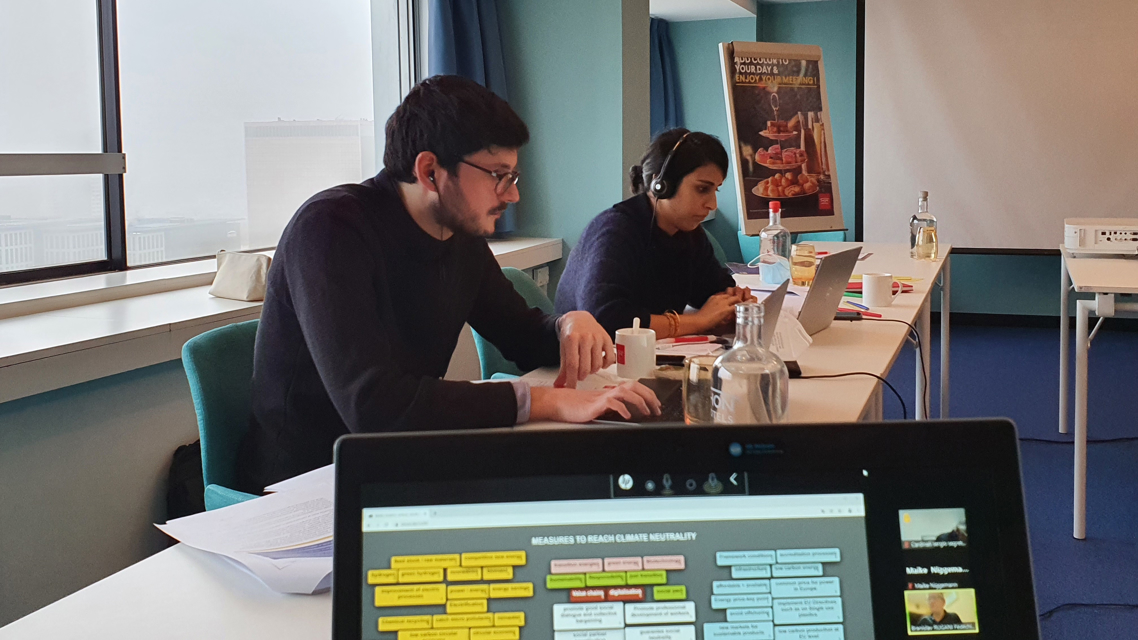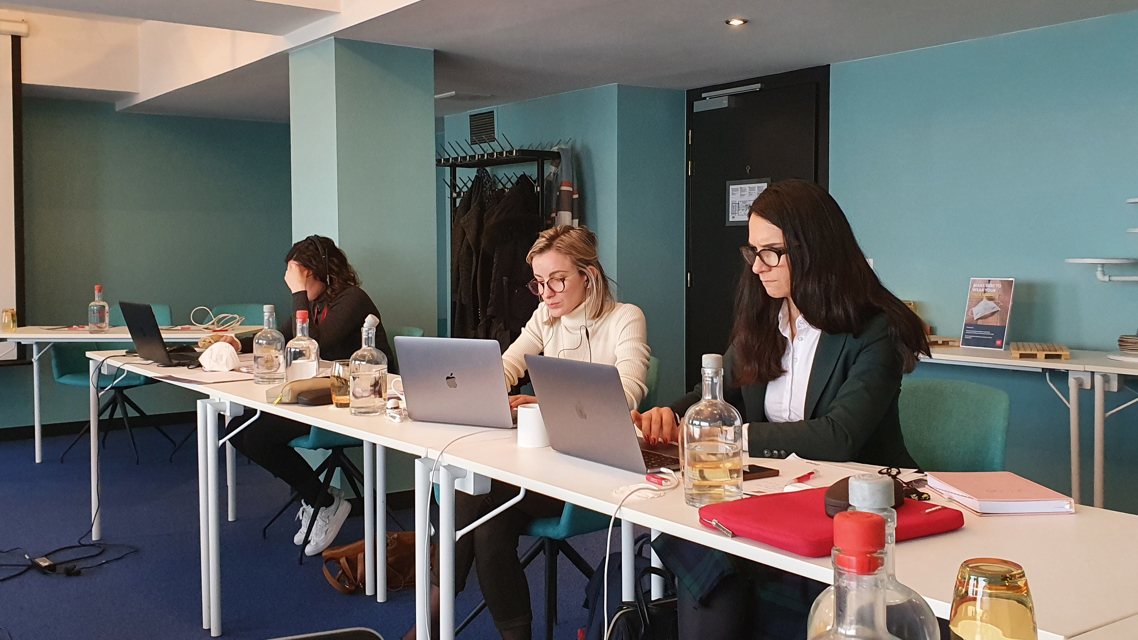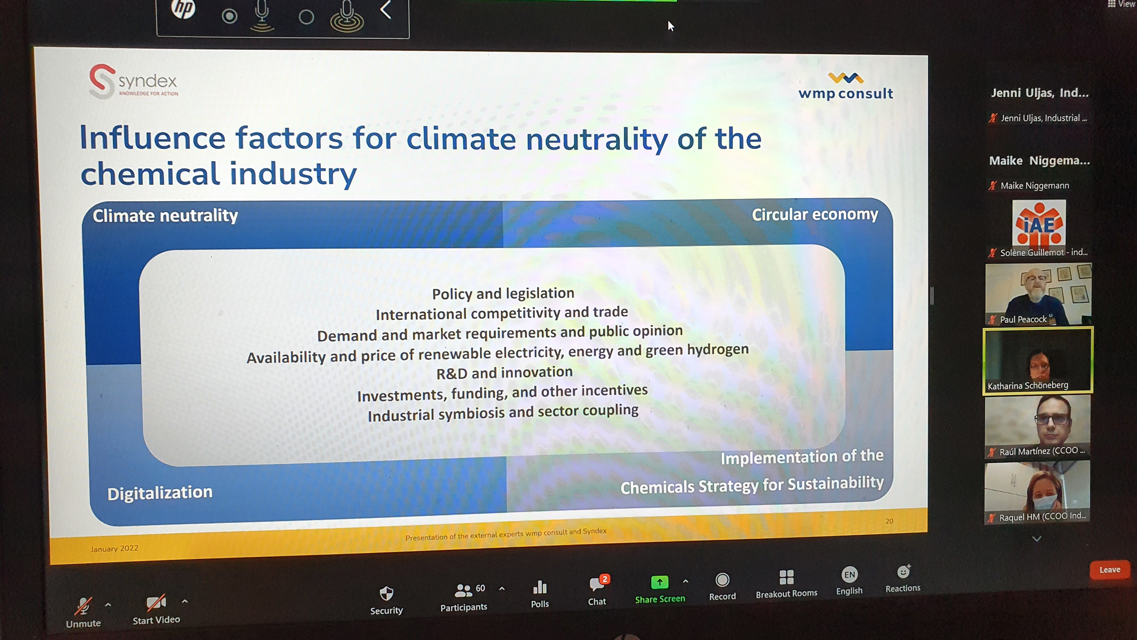Just how difficult is it going to be for the chemical industry to implement the changes needed to transition to climate neutrality?
Electrification, approaches to the circular economy, and innovative production processes are all part of the plan, but what kind of infrastructure will be needed, and does the current legal framework really fit?
Employers, trade unions and workers are all asking what these changes will mean for work organisation, future skills and competences, company culture and health and safety.
These questions were discussed earlier this week by industriAll European Trade Union and the European Chemical Employers Group at a workshop* on decarbonisation pathways for the chemical, pharmaceutical, plastics and rubber industries. The workshop (one of three events) examined the choices that companies have for their future business and production models in order to succeed in the industrial transformation.
A second workshop in June will deal in more depth with the challenges and opportunities for social partners to anticipate and shape the transformation.
The third in October aims to develop tools and recommendations and to plan common activities.
Luc Triangle, General Secretary of industriAll Europe, said:
“The chemical industry is an enabler of the green transition and an indispensable supplier of all other industries. It is essential that its decarbonisation is a success. We need a thriving chemical industry that provides good jobs in Europe. Only by working together as social partners can this transition be a success for all”.
*The workshops are part of the project ‘On the Road to Climate Neutrality – Social Partners’ Role in the Decarbonisation of the Chemical, Pharmaceutical, Rubber and Plastics Industries’, funded by the European Commission.




